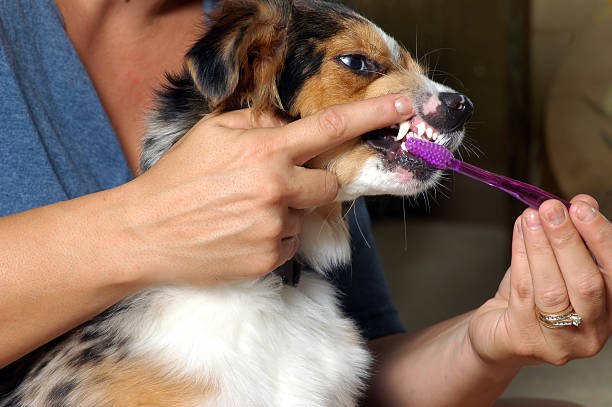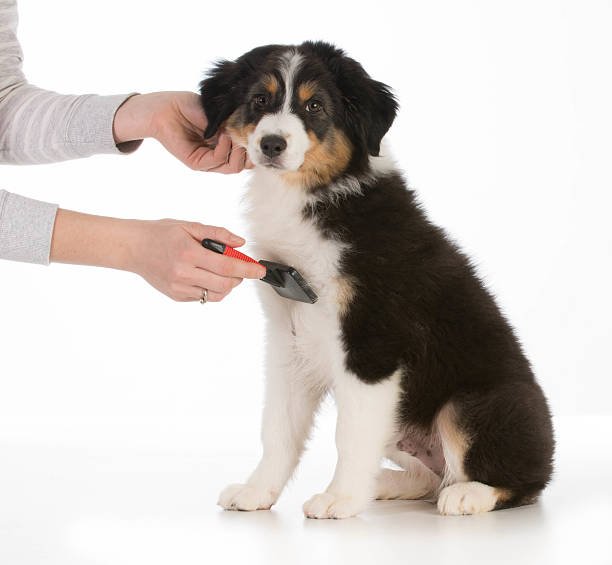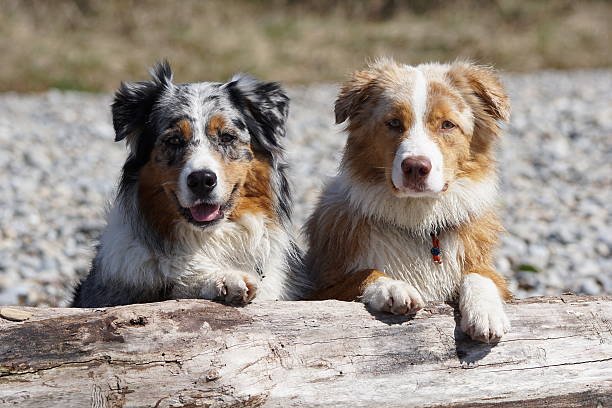
Training
Training Training Last updated July. 30, 2024 – Written by Asad Ali Hashmi Training To train an Australian Shepherd, you have to use their intelligence
Last updated July. 30, 2024 – Written by Asad Ali Hashmi

Exercise Requirements: Very high; lots of vigorous physical and mental activities every day. Grooming needs: Frequent coat brushing, regular ear cleaning, and nail trimming are all parts of the grooming routine for this dog. Health Issues: Hip dysplasia, elbow dysplasia, and certain eye conditions; regular veterinary visit unavoidable.
Health Problems: Australian Shepherds are generally healthy dogs, but as with all breeds, they can be prone to certain health conditions.
Common Health Concerns:
Hip and Elbow Dysplasia: This refers to an abnormality of the hip or elbow joint where the ball is not seated deeply in the socket. The former can be alleviated by regular vet check-ups and the latter is better managed with a healthy weight.
Progressive Retinal Atrophy (PRA): This group of genetic diseases affects the retina and occurs due to a gradual degeneration process, which culminates in partial or total loss of vision. An annual comprehensive eye exam is essential to ensure they have healthy eyes.
Collie Eye Anomaly (CEA): This is a condition that affects the eye, which can also cause blindness. Changes should be detected at an early stage with regular eye examinations.
Epilepsy: This is a life-threatening condition that can be quickly fatal for your Australian Shepherd. Medication and careful monitoring from your veterinarian can usually help many birds.
Deafness: Some Australian Shepherds, particularly those with merle coats, may be born deaf or hearing impaired. Regular check-ups can keep track of this danger.
Allergies: Sensitive to allergies (to foods or the environment). Symptoms may include itchy skin, ear infections, or digestive problems.
Gastric Dilatation-Volvulus (GDV): Also sometimes known as bloat, GDV is extremely serious and requires immediate veterinary attention; this happens when the stomach fills with gas or air, causing it to possibly twist.
Good health: Regular veterinary check-ups, a diet of quality pet food, access to clean water at all times, and exercise.
The usual diet for Australian Shepherds is typically:
Puppy food: Nutritionally complete kibble or canned dog food for their phase, size, and activity level.
Proteins: Meat-based proteins such as chicken, beef, or lamb.
Fruits: In moderation, your bearded dragon can eat safe fruits like carrots, apples, or small bits of blueberries.
Essential Fatty Acids – such as fish oil or flaxseed oils to promote a healthy coat and skin. Make sure they are eating properly and consult with a vet on what the right diet would be for them.
Australian Shepherds are intelligent, energetic, and versatile dogs that make incredible companions for active families. Proper training is essential to harness their sharp minds and eager-to-please nature, and you can explore the best techniques in our guide on Australian Shepherd Training. Their health and well-being thrive with a balanced diet, regular checkups, and adequate exercise, as outlined in Australian Shepherd Health and Care. Maintaining their stunning coat requires consistent grooming, with tips available in Australian Shepherd Grooming. Beyond their physical traits, their rich history reveals how they evolved from hardworking herding dogs to beloved family pets—learn more in Australian Shepherd History. These incredible dogs are a testament to intelligence, loyalty, and beauty, making them a favorite among dog lovers worldwide.

Training Training Last updated July. 30, 2024 – Written by Asad Ali Hashmi Training To train an Australian Shepherd, you have to use their intelligence

Health and Care Health and Care Last updated July. 30, 2024 – Written by Asad Ali Hashmi Health and Care Exercise Requirements: Very high; lots

Grooming Grooming Last updated July. 30, 2024 – Written by Asad Ali Hashmi Grooming Solid doodle types will only need a brush once per week,

History History Last updated July. 30, 2024 – Written by Asad Ali Hashmi History Australian Shephered is a breed of livestock dog that was developed

Australian Shepherd Australian Shepherd Last updated July. 30, 2024 – Written by Asad Ali Hashmi Introduction & Overview The Australian shepherd commonly called by its